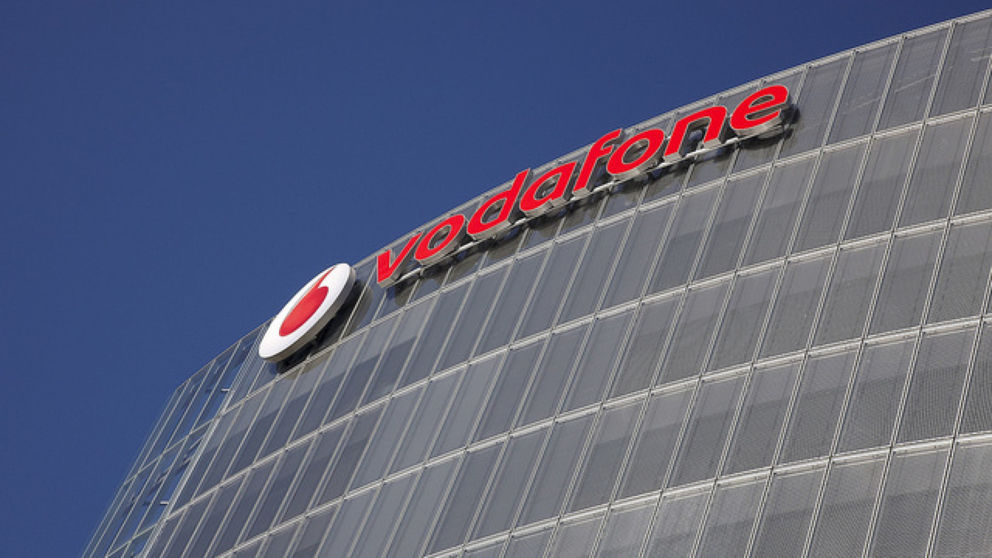Making sense of Vodafone's results is never easy.
The headline figures are inevitably distorted by one-off factors either from the current period or in the figures from a year earlier with which they are being compared.
That is certainly the case with today's half year results.
The headline revenue figure shows a 4.1% fall to €23.1bn (£20.1bn) (Vodafone, as a company whose biggest single market is Germany, reports in euros) but this is skewed by the fact that, in this reporting period, results from the mobile giant's Dutch operations have not been included as they have been merged during the last year with US cable giant Liberty Global's Dutch business and 'deconsolidated', in the jargon, from the accounts.
Similarly, the headline pre-tax profit or loss figure is similarly distorted.
On the face of it, Vodafone has swung from a half-year pre-tax loss of €5bn (£4.5bn) last time to a pre-tax profit of €1.2bn (£1bn) this time, until you bear in mind that the figures last time were distorted by a massive write-down in the value of the company's Indian business.
So, to get an idea about how the company is trading, investors have to look to what the underlying performance is telling them.
And here Vodafone does not look to be doing too badly.
Organic service revenues, a measure of Vodafone's core sales, were up 1.7% at €20.6bn (£18.bn).
Adjusted EBIT (earnings before interest and taxation) rose by 19.9% to €2.5bn (£2.2bn) while the EBITDA margin – a measure of the company's earnings as a percentage of total revenue and therefore a good indicator of its profitability – rose from 29.5% to 32.0%.
These measures show a company heading broadly in the right direction, although it is still beset by some headaches, most notably India.

Here, Vodafone has seen its margins crushed by a vicious price war, which is why it is trying to merge its operations, the country's second largest, with those of number three player Idea Cellular.
But what has really got investors excited on Tuesday – and sent the shares up by more than 5% – is the outlook statement from Vittorio Colao, who will shortly enter his tenth year as Vodafone's chief executive.
The company told analysts that they can expect EBITDA – as explained above, underlying profits – to grow by around 10% for the full year, having previously indicated growth of between 4-8%.
Much of this reflects a continued upturn in Europe where, during the eurozone sovereign debt crisis and subsequent economic downturn, Vodafone was dogged for years by sluggish performance in countries like Spain and Mr Colao's native Italy.
It is market leader in both countries and is finally seeing decent growth in the pair. Underlying profits grew by 8.8% in Italy during the first half of the financial year and by 9.6% in Spain. Also helping is strong demand everywhere for mobile data.
Moreover, the company does not appear to have been hit by – as much as it expected – the abolition of roaming fees in Europe, a measure imposed by the European Commission that came into effect in June this year.
Mr Colao said: "(This) is the first time we have raised Vodafone's organic EBITDA guidance (to analysts) in recent history."
Vodafone still faces an enormous number of challenges. Competition remains intense in Germany, Spain, Italy and the UK, where underlying profits went backwards during the first half of the year.
It still has to complete its Indian merger.
It is starting to look more at the provision of broadband, for example in Britain, where it last week announced plans to team up with infrastructure provider CityFibre to provide 5 million households with fibre to their homes.
And, everywhere, the company has to ensure service standards remain high amid the growing demand for mobile data.
However, on this evidence, Vodafone – a company whose shares are held by nearly every pension fund and life insurer in the land and therefore of vital importance to the long term savings of millions of Britons – has something of a spring in its step.
More business analysis
- Next article Some pre-Budget cheer for the Chancellor





